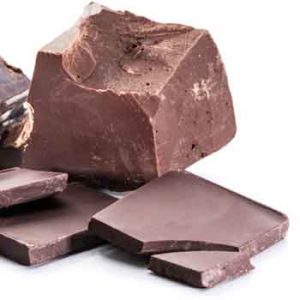
More evidence that low-calorie sweeteners are bad for your health
Studies show that artificial sweeteners can raise the risk of hypertension, metabolic syndrome, type 2 diabetes and heart disease, including stroke.

Natural Health News — The health benefits of eating dark chocolate have been extolled for centuries, but how it works to support health has been the subject of much debate. Now we have a new and intriguing theory.
Researchers from Louisiana State University have just reported that friendly bacteria in our intestines love dark chocolate and use it to produce anti-inflammatory compounds that support heart health.
Their findings were revealed at the recent 247th National Meeting & Exposition of the American Chemical Society (ACS).
The good and the bad
There are, broadly, two kinds of microbes in the gut: the ‘good’ ones and the ‘bad’ ones. Health depends on the ‘good’ ones both outnumbering and out-performing the ‘bad’ ones.
The ‘bad’ bacteria in the gut are associated with inflammation and can cause gas, bloating, diarrhoea and constipation. These include some Clostridia and some E. coli.
But, says explained Maria Moore, an undergraduate student and one of the study’s researchers. “The good microbes, such as Bifidobacterium and lactic acid bacteria, feast on chocolate. When you eat dark chocolate, they grow and ferment it, producing compounds that are anti-inflammatory.”
“When these compounds are absorbed by the body, they lessen the inflammation of cardiovascular tissue, reducing the long-term risk of stroke,” adds John Finley, PhD, who led the work. He notes that this study is the first to look at the effects of dark chocolate on the various types of bacteria in the stomach.
The team tested three cocoa powders using a model digestive tract, composed of a series of modified test tubes, to simulate normal digestion. They then subjected the non-digestible materials to anaerobic fermentation using human faecal bacteria.
Fibre is key
He explained that cocoa powder, an ingredient in chocolate, contains several polyphenolic, or antioxidant, compounds such as catechin and epicatechin, and a small amount of dietary fibre.
Both components are poorly digested and absorbed, but when they reach the colon, the desirable microbes take over. “In our study we found that the fibre is fermented and the large polyphenolic polymers are metabolised to smaller molecules, which are more easily absorbed. These smaller polymers exhibit anti-inflammatory activity,” he said.
Finley also noted that combining the fibre in cocoa with prebiotics is likely to improve a person’s overall health and help convert polyphenolics in the stomach into anti-inflammatory compounds.
“When you ingest prebiotics, the beneficial gut microbial population increases and outcompetes any undesirable microbes in the gut, like those that cause stomach problems,” he added.
Prebiotics are carbohydrates found in foods like raw garlic and cooked whole wheat flour that humans can’t digest but that good bacteria like to eat. This food for your gut’s helpful inhabitants also comes in dietary supplements.
Finley said that people could experience even more health benefits when dark chocolate is combined with solid fruits like pomegranates and acai.

Please subscribe me to your newsletter mailing list. I have read the
privacy statement